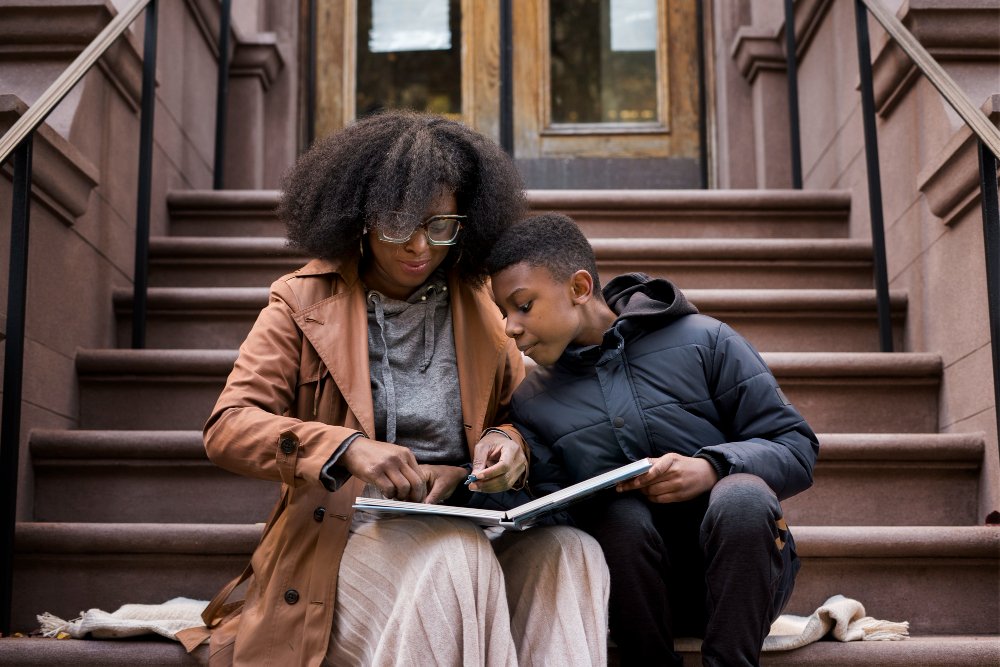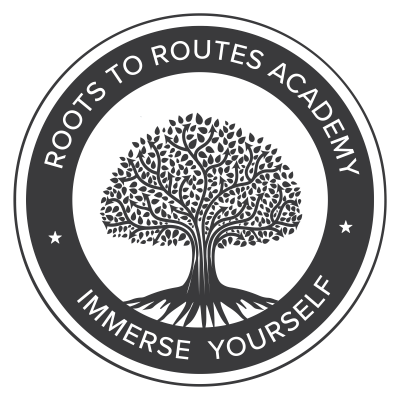Creating Supportive Spaces: The Key to Successful IEP Implementation
November 8, 2024

Understanding the Challenges of IEPs in Ontario Schools
Imagine a classroom filled with students, each one learning in a different way. Some students need more time to process information, others benefit from one-on-one help, and some find it hard to stay focused in a noisy room. Now picture a teacher trying to meet the needs of all these unique learners at once. This is often the reality for students with Individualized Education Plans (IEPs) in Ontario schools. An IEP is a plan designed to support students who have special learning needs, setting personalized goals and outlining specific strategies for success. However, despite good intentions, the process of implementing IEPs in many schools can be overwhelming for teachers, parents, and even students themselves.
For many students with IEPs, school can feel like a place where they don’t quite fit in. Without the right environment, these students may struggle with their academics, lose confidence, and feel misunderstood. But what if there was a way to change this? At Roots to Routes Academy, we are paving the way forward by creating supportive spaces that truly help students with IEPs thrive. This article will explore why supportive, inclusive spaces are essential for effective IEP implementation, how Roots to Routes Academy embodies these principles, and how parents and teachers can play a vital role in this journey. By the end, you’ll see why a supportive educational environment isn’t just nice to have—it’s a game-changer for students with IEPs.
Why Supportive, Inclusive Spaces Are Vital for Successful IEPs
Supportive spaces make a world of difference. Research has shown that when students feel safe, respected, and valued, their confidence grows, they participate more, and they’re more motivated to learn. For students with IEPs, a supportive environment helps them feel understood and capable, rather than overwhelmed. In fact, studies reveal that students in inclusive, supportive settings perform up to 20% better on academic tasks compared to those in less adaptive environments. This is because they’re more comfortable and more willing to engage, which makes learning enjoyable rather than stressful.
Roots to Routes Academy recognizes the impact of this environment on students’ well-being. At our academy, classrooms are not just places to learn; they’re spaces where students feel safe to ask questions, explore new ideas, and share their thoughts without fear of being judged or left behind. This type of environment allows each student to feel like they belong and are capable of achieving their goals.
Addressing the Whole Student
Students with IEPs need more than just academic help; they need a place where their emotional and social needs are also supported. For instance, studies have shown that students with IEPs who receive emotional support at school show 30% higher levels of resilience and self-confidence. When students feel accepted for who they are, they’re better equipped to take on challenges and develop essential skills like self-advocacy and problem-solving.
At Roots to Routes Academy, we don’t just focus on students’ grades—we support their growth as individuals. Our approach sees students as whole people with unique strengths, challenges, and identities. By recognizing and celebrating who they are, we empower them to bring their full selves to the learning process.
Roots to Routes Academy’s Culturally Responsive Approach

One thing that makes Roots to Routes Academy truly unique is our culturally responsive approach. For Black students, seeing their identities, history, and values reflected in their learning environment is incredibly powerful. Studies show that students who feel connected to their cultural identity at school are more likely to feel motivated, confident, and engaged. At Roots to Routes Academy, we know that Black students deserve an environment where their backgrounds and experiences are not only respected but celebrated.
Our academy incorporates materials, stories, and learning examples that speak to the rich history and diverse experiences of Black students. This approach is embedded in every aspect of the learning experience—from the curriculum to teacher training to the classroom environment. By creating spaces that affirm students’ identities, we help them feel a sense of belonging, making it easier for them to engage and succeed in their education.
Practical Components of Creating Supportive IEP Spaces
1. Flexible and Personalized Learning Plans
No two students learn the same way, and this is especially true for students with IEPs. In traditional classroom settings, it can be difficult for teachers to give each student the personalized attention they need. This is where flexibility becomes essential. Research indicates that students are 25% more likely to achieve their IEP goals when learning plans are adaptable and tailored to their individual pace and strengths.
At Roots to Routes Academy, we design learning plans that adapt to each student’s unique needs. Our educators work closely with students to set realistic goals, adjust assignments, and choose resources that work best for them. Whether a student needs extra time on assignments, prefers hands-on learning, or benefits from visual aids, we make it happen. This flexibility ensures that each student has the tools they need to thrive without feeling pressured to conform.
2. Accessible Resources and Specialized Support
Providing accessible resources is a critical part of creating supportive spaces for students with IEPs. This can include adaptive technology, specialized reading materials, or one-on-one support. Statistics show that 83% of students with learning disabilities improve their academic performance when they have access to specialized resources that cater to their needs. These resources make learning less intimidating and help students feel capable of tackling challenges.
At Roots to Routes Academy, we offer resources that are designed with our students in mind. For example, we allow for use of digital learning tools that are easy to use and supportive of diverse learning needs. We also ensure that our materials are culturally relevant and affirming, so students see themselves reflected in what they study. This approach not only supports academic growth but also fosters a sense of pride and connection to their learning.
3. Safe Spaces for Identity and Expression
One of the most important aspects of a supportive space is that students feel free to be themselves. For Black students, finding a space where they can express themselves without judgment or the pressure to conform is essential. Studies have found that students who feel able to freely express their identities are 40% more likely to report high levels of satisfaction and engagement at school.
At Roots to Routes Academy, we have created an environment where students feel empowered to bring their full identities into the classroom. They can openly discuss their thoughts, share their cultural experiences, and engage in topics that matter to them. This freedom to express who they are is at the heart of creating a supportive learning environment, and it allows students to develop a strong sense of self and community.
Teacher Training and Development in Supportive IEP Practices
1. Building Teacher Awareness and Sensitivity
Creating supportive spaces isn’t just about changing the classroom setup—it’s also about making sure teachers are trained to understand and respond to each student’s unique needs. Research highlights that students with IEPs perform better when teachers are trained in adaptive learning strategies and culturally responsive practices. Roots to Routes Academy invests in ongoing training for our teachers so they are equipped to provide personalized, empathetic support.
Our teachers receive training on how to recognize and meet the individual needs of students with IEPs. This includes understanding the cultural backgrounds of our students and learning to create lesson plans that resonate with their identities. By fostering awareness and sensitivity, our educators are able to build connections with students that support both academic growth and personal development.
2. Encouraging Collaborative Teacher-Student Relationships
The bond between teachers and students plays a major role in the success of any IEP. When students feel supported by their teachers, they are more likely to ask questions, seek help, and engage fully in their learning. In fact, students who report positive relationships with their teachers are 50% more likely to succeed academically.
At Roots to Routes Academy, our teachers make it a priority to build meaningful relationships with each student. They listen, encourage, and celebrate student achievements. This personal connection helps students feel valued and supported, making it easier for them to reach their goals.
The Role of Parents and Families in Creating Supportive IEP Environments

1. Active Communication and Collaboration with Schools
Parents play a vital role in supporting their child’s IEP goals. Regular communication with teachers and school staff can help parents stay informed and advocate for their child’s needs. Statistics show that when parents are actively involved in their child’s education, student achievement rates improve by 40%.
Roots to Routes Academy believes in strong partnerships with parents. We provide regular updates on student progress, host family meetings, and encourage open communication. By working together, we ensure that students receive the comprehensive support they need to succeed.
2. Creating Supportive Spaces at Home
A supportive environment doesn’t stop at the school doors. Creating a safe, encouraging space at home can reinforce the support students receive at school. This might mean setting up a quiet, organized place for homework, encouraging open conversations about school experiences, or celebrating achievements.
Roots to Routes Academy offers parents tips and guidance on how to create a supportive home environment that aligns with their child’s IEP goals. This teamwork between school and home helps students feel consistently supported, making it easier for them to succeed.
Real-World Impact: How Roots to Routes Academy is Transforming IEP Implementation for Black Students
Roots to Routes Academy has seen firsthand the difference that supportive spaces can make. Consider a student who came to our academy feeling disconnected and struggling with low self-esteem. With a personalized learning plan, one-on-one support, and a classroom that celebrated their identity, this student began to thrive. By the end of the year, they had achieved their academic goals and developed a strong sense of confidence and self-worth.
These success stories aren’t unique. They reflect the academy’s commitment to helping students with IEPs reach their full potential in an environment that values who they are. Our approach has proven effective, not only in improving academic performance but also in building students’ confidence and resilience.
Ongoing Commitment to Improvement
At Roots to Routes Academy, we are always seeking ways to improve our programs and ensure that every student feels supported. This includes continuous teacher training, feedback from parents and students, and curriculum updates. Our commitment to growth and adaptability means that our students benefit from the best possible support.
Conclusion: Building a Path Toward Student Success through Supportive Spaces
Creating supportive spaces for students with IEPs is not just a benefit—it’s essential. At Roots to Routes Academy, we’re leading the way in building environments where students feel safe, supported, and valued. When students are given the freedom to learn in ways that work best for them, celebrate their identities, and connect with teachers who understand their needs, they can truly thrive.
To parents and teachers alike, we invite you to join us in this journey. Roots to Routes Academy offers a unique opportunity for students to grow academically and personally in an environment that celebrates who they are. When it comes to your child’s success, don’t settle for anything less than a place where they are fully supported, understood, and empowered. Come see the difference a truly supportive space can make.
![]()
Related Posts
We’re So Glad You Made It Here
We know you might still have a few questions or concerns and that’s completely okay. We’re here to listen, to support, and to make sure you have all the information you need.
If something’s on your mind, don’t hesitate to reach out. Just send us a quick message, we’re happy to help.
Once you do, a member of our team will get back to you shortly and you’ll also start receiving our free, value-packed newsletters filled with tips, resources, and insights to support your child’s learning journey.

